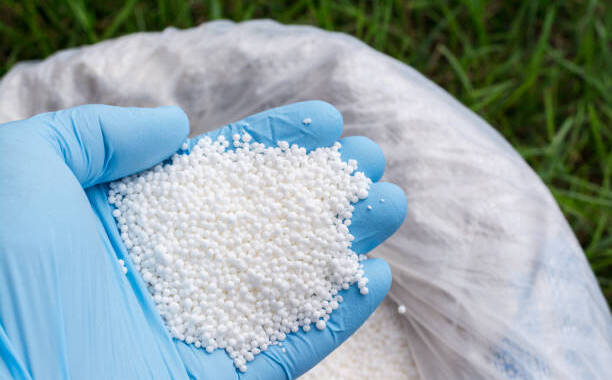
The ManicaPost

Samuel Kadungure and Ray Bande
UNSCRUPULOUS haulage truck drivers from companies that were contracted by Government to ferry voluminous consignments of unpacked fertilisers from Beira are channelling the commodity to the black market, The Manica Post can reveal.
The country has been facing an acute shortage of fertiliser since the country’s biggest fertiliser producer, Sable Chemicals, is operating below capacity due to various challenges.
While Sable has the capacity to produce 240 000 tonnes of fertiliser per year, the company has not been able to meet the national AN annual requirements of 150 000 per annum.
Other producers such as Zimbabwe Fertiliser Company (ZFC), Zimbabwe Phosphate Industries, Omnia and Windmill have drastically cut production citing high costs of raw materials and lack of foreign currency.
To close this gap, Government has been fast-tracking shipments through a Government-to-Government deal with China.
Once the fertiliser gets to the Port of Beira, the truck drivers ferrying the product from Mozambique then work in cahoots with fertiliser dealers to divert part of it to the black market.
The dealers have the financial muscle to pay cash on delivery.
The Manica Post has established that a ship laden with fertiliser docked at Beira a fortnight ago, and some truck drivers are feeding the fertiliser black market as soon as they cross Forbes Border Post into Zimbabwe.
The trucks are bringing into the country Ammonium Nitrate (top dressing) and Calcium Nitrate fertilisers — both of which have suddenly flooded the black market where it is cheaper.
Investigations conducted by The Manica Post, which involved interactions with truck drivers, local dealers and law enforcement agents, revealed that some drivers transporting imported unpacked fertiliser in containers divert from their routes to offload part of the consignment in Mutare and Rusape on their way to Harare or Bindura.
The fertiliser, which is sold in 20-litre buckets, is then packed in the usual yellow, green and white 50kg bags that will find their way to various black market spots in Mutare and Rusape.
The black market dealers buy Calcium Nitrate at US$20 for three buckets or 60kg, while Ammonium Nitrate (AN) goes for US$30 for the same quantity.
On the balck market, Calcium Nitrate sells at US$25 per 50kg, while AN sells at US$30 per 50kg, which is way cheaper than the formal market where the same quantity of fertiliser costs US$50.
As a result, most farmers are shunning retail outlets and flooding the black market, thereby fanning the vicious cycle of corruption.
Of late, Calcium Nitrate, which contains 27 percent of nitrogen, has flooded the black market in Mutare and Rusape where it is being sold in various packages and quantities.
However, dealers prefer AN fertiliser with 34,5 percent nitrogen due to its high demand as a result of the incessant rains that are increasing leaching.
A truck driver recently revealed to The Manica Post that when loading at Beira, an excess of two tonnes are loaded to cater for transportation losses.
That is the fertiliser the drivers divert to the black market.
Recently, two truck drivers — Blessing Matanhiko of Budiriro 2, Harare and Mutafi Kumar (43) of Malbereign, Harare, were arrested by officials from the Southern Africa Regional Anti-Corruption Organisation (SARACO) and the Zimbabwe Republic Police Criminal Investigation Department (CID) for diverting imported fertiliser to the black market in Rusape.
The two were working for the International Freight Services (IFS), which had been contracted by FSG to ferry some fertiliser from Beira to Bindura.
SARACO director, Mr Paddington Kadzangura said the drivers would collect 30 tonnes of unpacked fertiliser in Mozambique and offload two tonnes from each truck near Rusape Dam before proceeding to offload the remainder in Bindura.
“We got a tip-off on the goings-on in the transportation of fertiliser from Mozambique to Bindura and did our own investigations before engaging our CID counterparts in Rusape.
“The two arrested drivers connived to steal four tonnes of fertiliser, which they were supposed to deliver to FSG in Bindura. Two tonnes of fertiliser were offloaded in Rusape from each truck. Each truck was carrying 30 tonnes, but only 28 tonnes were delivered. They never reported the matter to their employer.
“Their employer was only informed by the client (FSG) that there was a shortfall and investigations commenced, leading to the arrest of the two by SARACO and CID details at the company premises,” said Mr Kadzangura.
FSG logistic manager, Mr Ngoni Kandeya said they are one of the companies mandated to supply top dressing fertilisers to Government programmes like Pfumvudza and Command Agriculture.
He, however, said losses in transit are very rare, adding that the system is watertight.
Mr Kandeya said FSG uses both road and rail to bring fertiliser raw materials into the country.
“The two modes compliment each other and give price competitive advantages when used simultaneously. Regarding loss in transit, the system is watertight as each transporter is required to have a comprehensive insurance cover for whatever is entrusted to their trucks. Where negligence is proven for transit pilferage, the full recovery bill is debited to the trucker’s account and we deliver what we are mandated in full.
“Losses in transit are very rare because we always hold transporters accountable as explained above. Regarding documents for losses in transit by drivers, this is privileged information that can only be relayed to transporters in question when they are required to make good the loss,” said Mr Kandeya.



